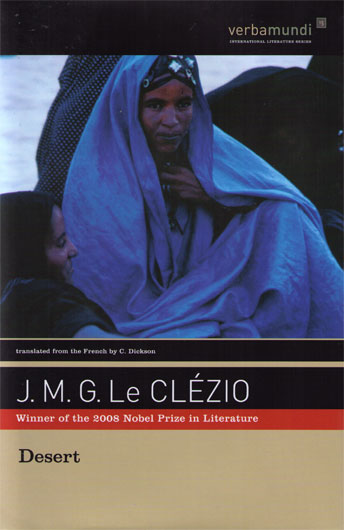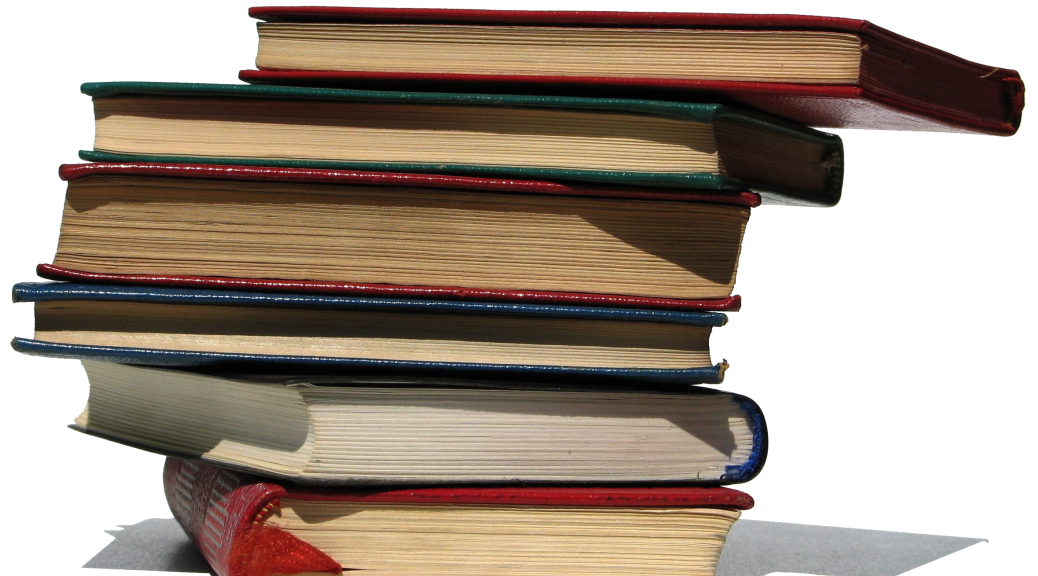 Last week, as we rolled south toward Kansas, Mrs. Hayes and I occupied our minds with podcasts. The pillowy ride of the new (to us) full-size Buick sedan and the monotony of eastern Iowa might have lulled us to sleep were it not for The Incomparable, The /Filmcast, Roderick on the Line, and Radiolab. "Translation," last week's Radiolab episode, got me thinking about the books I've read in translation, particularly the book I'm reading right now – J.MG. Le Clézio's Désert, translated in my edition by C. Dickson.
Last week, as we rolled south toward Kansas, Mrs. Hayes and I occupied our minds with podcasts. The pillowy ride of the new (to us) full-size Buick sedan and the monotony of eastern Iowa might have lulled us to sleep were it not for The Incomparable, The /Filmcast, Roderick on the Line, and Radiolab. "Translation," last week's Radiolab episode, got me thinking about the books I've read in translation, particularly the book I'm reading right now – J.MG. Le Clézio's Désert, translated in my edition by C. Dickson.
This is my first modern French novel. I dutifully read, as I'm sure many of you did, Voltaire and Victor Hugo and Guy de Maupassant in high school. I might be forgetting a few. Since I don't speak French, I never read any of them in anything other than English, just like I'm reading Le Clézio. Mostly, reading this book is flying blind. I'm ignorant of any conventions in French literature, and completely reliant on C. Dickson to convey Le Clézio's entire persona as an author – characterization, phrasing, pacing, voice, everything except the plot. If Désert were a film by Godard or Melville I might have more to go on; I wouldn't need a translator to help with anything other than dialogue. But C. Dickson's my only lifeline to the ship Le Clézio is sailing across the Sahara. I'm over halfway through it, and while I can't say if I "get" it yet, I can say with conviction I'm in awe of the writing. Or is it the translation?
I read and translated a little Russian literature in Russian as an undergrad: Pushkin and Akhmatova and Gogol come to mind. I don't speak or read Russian well enough to read a book anything but haltingly, but at one time I got along enough to form a few opinions, mainly about poets. Blok and Akhmatova blew me away. I know enough about Russian literature and culture to have a decent idea of what an author or poet is doing or the society his work is engaging. With the French, I have no idea. (I will be even more lost when I finally get to Ha Jin's War Trash, hopefully by the end of the year.)
It's funny. Some of my favorite authors are those I can only read in translation. Murakami, for example. There are books of his I like better than others, but despite my near-complete ignorance of non-automotive Japan and my total Japanese illiteracy, he is definitely near the top of my list of favorite writers. How much of that do I owe to Murakami, and how much of it to his English translators, Jay Rubin and Philip Gabriel? I suppose I could answer that by saying I never recommend anyone read Constance Garnett's translations of Dostoevsky or Tolstoy or anybody else. (Please. Read the newer and superior Prevar & Volokhonsky translations.) A good translator gets out of the way and imparts as much of the original author's vision and voice as possible, and a bad one can completely destroy the original while leaving the reader completely unaware of the demolition. The problem is knowing which translator has been at work.
What are you reading?

